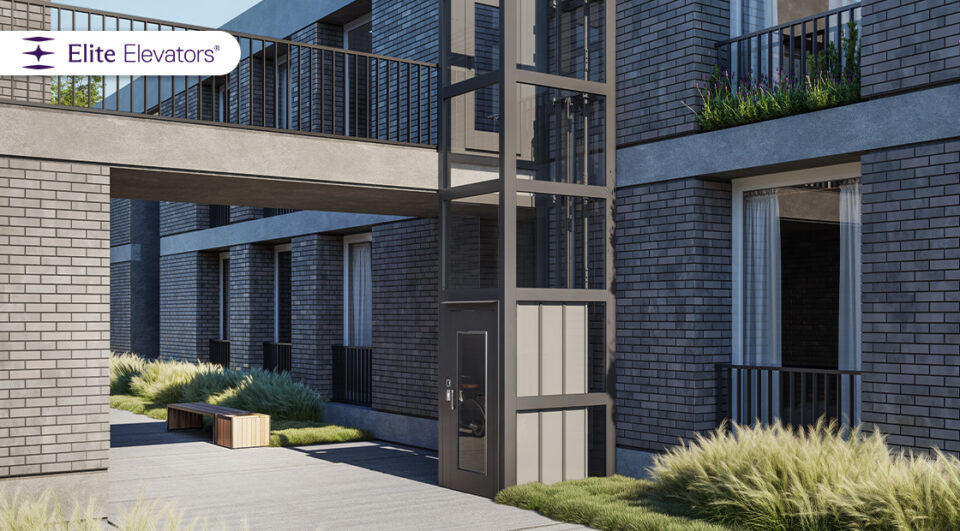As home design continues to evolve, homeowners are increasingly investing in features that not only enhance comfort but also add long-term value. One such feature gaining popularity is residential elevators. Once considered a luxury for the affluent or those with mobility challenges, home elevators have transitioned into a more common, desirable feature for a wide range of buyers. While residential elevators offer numerous practical benefits, such as accessibility and convenience, they can also significantly increase the overall value of a home. In this blog, we will explore the various ways that installing a residential elevator can raise your home’s market value.
1. Appealing to a Wider Range of Buyers
In today’s real estate market, accessibility is a growing concern. As the population ages, more potential buyers are looking for homes that can accommodate their needs as they grow older. A residential elevator makes a home more accessible to individuals with mobility impairments, the elderly, or those recovering from an injury. By installing an elevator, you are future-proofing your home and appealing to a broader audience, including buyers who prioritize accessibility.
Moreover, elevators can also be beneficial for families with young children, helping them easily move between floors without carrying heavy items or worrying about the safety of climbing stairs. The added convenience and versatility of a home elevator can attract a diverse range of potential buyers, which can boost the property’s desirability and, ultimately, its value.
2. Enhancing Luxury and Aesthetic Appeal
A residential elevator is often perceived as a symbol of luxury and sophistication. Installing a modern, stylish lift can elevate the overall aesthetic of your home, especially if you live in a multi-story property. Today’s home elevators come in a variety of designs, from sleek and minimalist glass elevators to more traditional, wood-paneled options. These customizations allow you to choose an elevator that complements your home’s style and enhances its overall look.
The perception of luxury created by a home elevator can increase your home’s value by making it stand out in the competitive real estate market. Buyers often associate these advanced features with high-end, premium properties. As a result, the presence of an elevator can raise the asking price of your home, potentially leading to a higher return on investment when you decide to sell.
3. Improving Livability and Functionality
Homeowners are constantly looking for ways to improve the functionality of their living spaces. Multi-level homes, while offering more space and room for activities, can become less practical as homeowners age or experience changes in their mobility. A residential elevator enhances the livability of a multi-story home, making it more functional and comfortable for everyone.
For larger homes, a lift can make navigating between floors much more convenient, particularly for those with heavy loads, like laundry, groceries, or moving furniture. This added convenience contributes to the overall appeal of the home and may make it more attractive to prospective buyers who value functionality and ease of use. Buyers are often willing to pay more for a home that enhances their daily quality of life, and a residential elevator is an investment that can deliver on that front.
4. Energy Efficiency and Space-Saving Benefits
While the primary function of a residential elevator is to provide vertical transportation, many modern home lifts are designed with space efficiency and energy conservation in mind. Unlike traditional staircases, which require a significant amount of space, residential elevators can be installed in tight spaces or incorporated into the home’s existing structure. This can free up additional room for other uses, which is particularly valuable in smaller homes.
Additionally, many contemporary home elevators are energy-efficient, requiring less power to operate than traditional lifts of the past. Buyers who are conscious of energy consumption and sustainability may see the installation of an elevator as a positive feature, particularly if it contributes to the home’s overall energy efficiency.
5. Increasing Home Safety and Security
In addition to improving accessibility and luxury, residential elevators enhance safety and security. For families with young children, elderly relatives, or individuals with mobility challenges, a home elevator significantly reduces the risks associated with stairs, such as falls and accidents. Elevators provide a safer and more convenient way to navigate multi-story homes, especially for those with physical limitations.
Home lifts also come with several built-in safety features, such as emergency stops, door sensors, and backup power systems, which enhance the overall security of the home. The added safety features may make your home more appealing to buyers who prioritize security, adding to its value.
6. Increased Resale Value
As more homeowners and prospective buyers see the value of residential elevators, the demand for homes with this feature is increasing. While the upfront cost of installing an elevator may seem high, the return on investment can be significant. A study by the National Association of Realtors (NAR) found that certain high-end home features, including residential elevators, can lead to higher resale values. Homes with elevators tend to sell faster and for a higher price than those without, particularly in markets where multi-level homes are common.
In addition to resale value, the presence of a home elevator can help your property stand out in a crowded real estate market. Buyers who view your home may consider it a more practical and luxurious option, leading to increased interest and potential for higher offers.
7. Appealing to Luxury Homebuyers
Luxury homebuyers often seek out properties with unique and high-end features that align with their lifestyles. Residential elevators are an attractive option for those seeking ultimate convenience and a touch of opulence in their homes. In fact, home elevators are commonly found in multi-million-dollar estates and high-end properties. Buyers in this market are willing to invest in a home that reflects their status and provides them with all the comforts they desire.
Having a residential elevator in your home can give it a distinct competitive edge, positioning it as a luxurious, premium property. This not only makes it more likely to attract wealthy buyers but can also increase the value of your home when it comes time to sell.
8. Improving Long-Term Sustainability
As homeowners increasingly focus on creating homes that are both functional and sustainable, a residential elevator can contribute to long-term sustainability. Elevators are not only practical for those with mobility impairments, but they also add value by future-proofing the home. A lift system can help homeowners live in their homes longer, reducing the need to move to a more accessible space. As people are living longer and prefer to “age in place,” an elevator provides a sustainable solution to help them remain in their homes as their mobility needs change.
This aspect of long-term sustainability adds significant value to a property, especially in areas with an aging population. Homes that cater to the needs of aging individuals are increasingly seen as highly desirable, which can translate to higher resale prices in the future.
Conclusion
Incorporating a residential elevator into your home can have a profound impact on its value, offering practical, aesthetic, and financial benefits. From enhancing accessibility and safety to providing luxury and convenience, home elevators are an investment that can boost your home’s marketability and long-term value. Whether you’re looking to accommodate family members with mobility issues, improve the functionality of your home, or appeal to a broader range of buyers, a residential elevator is a feature that can make a real difference. As homebuyers increasingly prioritize convenience and accessibility, the addition of a lift system can ensure that your home stands out and provides significant returns when the time comes to sell.

